Still reeling from a post-World Cup-hosting high, Germany has proven itself to be a diverse and friendly destination, which is particularly visible in its many gay-friendly cities. All you need is a RailEurope pass and an open mind to experience the natural beauty—both the scenery and the women—of Deutschland.
Begin your travels in Freiburg, a charming university city in the southwest corner of Germany. Freiburg is the greenest city in Germany for two reasons: it is the entryway to the green hilly countryside of the Black Forest and it is the only large municipality to elect a Green Party mayor. The mostly liberal leanings of the locals, 10% of which attend the prestigious Albert-Ludwigs-University, also make it possible for the small gay scene to flourish. It is not unusual to see faux-hawked punk girls walking hand-in-hand through the shopping arcades on the city’s main drag, Kaiser-Joseph Strasse, or sharing a piece of the famed Schwarzwälder Kirschtorte (Black Forest chocolate-cherry cake) at one of the frill-and-lace bedecked cafés.
For a city with only 215,000 inhabitants, many mixed LGBT options exist. There’s Tiffany Bar (Grünwälderstr 6), a seven-night-a-week divey dance club that inspires drunken hookups galore, and Sonderbar (Salzstr 13), a hidden cocktail lounge that attracts more refined clientele. Once a month, the out-of-the-way Waldsee Inn (Waldseestr 84, schwulesdance.com) holds an extravagant dance party that draws hundreds of gays from the surrounding villages, including those of nearby France and Switzerland. Jos Fritz (Wilhelmst 15, josfritzcafe.de) is a lesbian-owned bookstore with a bar/café/performance space in the back that offers a casual women-only party for a mixed-age crowd on the first and third Fridays of the month. On the other Fridays, Rosa-Hilfe (rosahilfefreiburg.de), a local gay community organization, holds a mixer there. A nearby Jazzhaus (Schnewlinstr 1, jazzhaus.de) holds Sister Zone, a highly anticipated women-only dance party every few months that turns into something of a meat market for the hungry young fräuleins. Alternative music venue E-Werk (Eschholzstr 77, ewerk-freiburg.de) also holds occasional gay dances, including the annual Ball Verqueer for Karneval, where attendees are encouraged to dress in drag.
When you’ve had your fill of nightlife, wake late and stumble out to explore the city by day. A short walk from the city center leads you into the Black Forest, where secluded spots and dramatic countryside vistas make for romantic picnics. Take the stairs from Konviktstrasse onto the Schlossberg, the nearest mountain bordering the city center, or ride the Schauinslandbahn (bergwelt-schauinsland.de) cable car up to one of the highest points in this region of the forest. If heights aren’t your style, stay on lower ground and roam the well-preserved Stühlinger neighborhood, dubbed by some as a “lesbian paradise” because of the many dyke residents. In the city center, explore unique shops that line the winding cobbled streets, lounge with a beer on the steps of Augustinerplatz, or visit the Saturday market full of handiworks, fresh farm products and all kinds of wursts on Münsterplatz, the main square around the cathedral.
As you roam, beware of the Bächle, small canals that run through the streets, lest Freiburg inspires you to put down roots there for good: visitors who fall in are destined to marry a Freiburger (or in our case, enter into a legal civil union).
Accommodations run the gamut: you’ll find luxury at the high-end Colombi Hotel (from $320, Rotteckring 16, colombi.de), communality at the Black Forest Hostel (from $17, Kartäuserstr 33, blackforest-hostel.de), and authentic Schwarzwald hospitality in the old town’s Kreuzblume Hotel (from $118, Konvikstr 31, hotel-kreuzblume.de).
From Freiburg, it’s a three-hour ride by Inter City Express (Germany’s fastest train) to Cologne, considered by many to be the country’s gay capital. In this predominately Catholic city, Cologne Pride (known in Germany as Christopher Street Day, or CSD) is the biggest event after the debaucherous Karneval festivities. But as the friendly Kölners will attest, every day is Christopher Street Day here. A walk through town, especially in the “Bermuda Triangle” near Rudolfplatz, yields the sight of countless rainbow flags lauding gay cleaners, photo developers and clothing shops. Indeed, Cologne is the Chelsea of Germany.
The main attraction for visitors of all faiths is the Kölner Dom, the enormous Gothic cathedral at the center of this Roman city. Fit folks can climb the 509 steps in the steeple of this UNESCO World Heritage Site to a platform providing views of the region’s populous industrial portion of the Rhine. Follow the climb with a tasty visit to the popular Schokoladenmuseum (Am Schokoladenmuseum 1a, schokoladenmuseum.de), a museum dedicated to the history of chocolate, specifically the rich Stollwerck brand.
Kölsch, the local beer, is the generous drink of choice in Cologne. Served in tiny glasses, it’s common for bars to offer one-Euro-or-less happy hour specials, making it easy to down a few too many much too quickly. With plenty of the bubbly stuff running through your veins, head to the Blue Lounge (Mathiasstr 4-6, blue-lounge.com), a predominately lesbian dance club, or Gezeiten (Balthasarstr 1, gezeiten-koeln.de), a lesbian-owned bar/restaurant/meeting space. Every Wednesday at Neuschwanstein is the long-running Pink Triangle Party (Mittelstr 12-14, pink-triangle.de), and one Wednesday a month is the enormously popular GnaDenLos (gna-den-los.de) at the same venue, a gay and lesbian ‘80s party. The opening Pride party for women, WomenPride, will take place June 23rd at Bürgerhaus Stollwerck (Dreikönigenstr 23, womenpleasure.de, womenpride.de), a spacious former chocolate factory, today the site of many gay and alternative cultural events.
For accommodations as colorful as the city, stay in a unique artist-designed room at the Cristall Design Hotel (from $125, Ursulaplatz 9-11, hotelcristall.de). Spot German celebrities at the Hyatt Regency (from $230, Kennedy-Ufer 2A, cologne.regency.hyatt.com). A low-budget no-frills option is the Station Hostel, just steps from the Dom in Old Town (from $25, Marzellenstr 44).
The next stop on your choose-your-own-lesbian-adventure through Germany should be the harbor city of Hamburg, if only to experience the Bourbon Street-style pansexual insanity around the Reeperbahn, the main street in the city’s Red Light District. Though there is something of a gay ghetto of rainbow-flag businesses on the Lange Reihe in the eastern St. Georg neighborhood, the western St. Pauli neighborhood (where the Reeperbahn is located) is the sexy focal point of this open-minded free-loving city.
The perfect way to set the tone for the night is a visit to the Pulverfass Cabaret (Reeperbahn 147, pulverfasscabaret.de), a thrice-nightly “Travestie Show”, featuring an international assortment of bizarre drag performers. Then, if you dare, take in a strip show (note that some clubs don’t allow women to enter) or play a flat-rate fee for 24 hours of porn at a Sex Kino—a multi-screen dungeon with both public and private play spaces. On the streets surrounding the Reeperbahn, teenagers, tourists and trans-prostitutes loiter with plastic beer cups outside live sex shows, fast-food joints and every kind of high-, middle- and low-brow bar imaginable.
For specifically lesbian-friendly environs, you’ll have to go elsewhere. Frauencafe Endlich (café-endlich.de) is a great resource; the lesbian-owned café and event space is part of the women-only Hotel Hanseatin (from $105, Dragonerstall 11, frauenhotel.de). Look to the northern streets of St. Pauli, bordering on the alternative neighborhood Eimsbüttel for more options, like Tochtergesellschaft (Stresemannstr 60, tochtergesellschaft-hamburg.de), a lesbian-run bar and meeting space that has been around for more than three decades. Nearby, Studio-Kino cinema (Bernstorffstr 93-95, studio-kino.de) shows a lesbian film the second Monday of every month. Les Autres (Am Brunnenhof 3) is a gay bar that attracts a young mixed gay/lesbian dancing crowd Thursdays through Sundays.
Besides the Hotel Hanseatin, you can check into innovative, gay-friendly digs at the swank new East Hotel (from $200, Simon-von-Utrecht-Str 31, east-hamburg.de), where each floor circulates a different scent through the ventilation. For a more traditional hotel, the Baseler Hof (from $100, Esplanade 11, baselerhof.de) is a comfy option.
If you should tear yourself away from the scandalous Hamburg (remember: what happens in Hamburg stays in Hamburg), take the high-speed train an hour and a half to Germany’s capital, Berlin.
Visitors don’t have to look too hard to find the gay life here. Since German reunification in 1990, Berlin has melded its two cities into one vast playground—from the commerce-happy West, to the underground-artsy East—all under the rule of one very out Mayor Klaus Wowereit. There are three gay centers in the city, the most obvious of which is the Schöneberg neighborhood—Berlin’s version of the West Village. Gay men and their girlfriends can easily go bar-hopping all night long here, and though acceptance is high, lesbians will find more of their own in other parts of town. The annual CSD parade (July 23rd, csd-berlin.de) travels through Schöneberg, and those looking to stay close to the action should check into the gay-welcoming Hotel Berlin (from $125, Lützowplatz 17, hotel-berlin.de), located within spitting distance of the parade and the Lesbian-Gay Street Festival at Nollendorfplatz (July 16th & 17th, regenbogenfonds.de). There’s also the budget-friendly women’s Frauenhotel Artemisia (from $50, Brandenburgischestr 18, frauenhotel-berlin.de), not at all far from the Das Verborgene Museum (Schlüterstraße 70, dasverborgenemuseum.de), an art museum showcasing female artists only.
For a more hip alternative to Schöneberg’s gay scene, direct your attention to the former East Berlin districts of Mitte and Prenzlauer Berg, and particularly the Kreuzberg neighborhood. Here you’ll find the Schwules Museum (Mehringdamm 61, schwulesmuseum.de), which, through modern art and photos, portrays gay life from the turn of the 19th century to today. The Museum also provides a space for performance art, where I was lucky enough to catch out Oslo-based artist Sabina Jacobsson (kunst.no/Sabina) conduct interactive smell experiments as part of the program Intimate Spaces. Kreuzberg is also home to many mixed gay/lesbian bars and clubs, such as SchwuZ (Mehringdamm 61, schwuz.de), dance club SO36 (Oranienstr 190, so36.de), and the kitschy Roses (Oranienstr 187). Two women-only spaces are Schoko-Café (Mariannenstr 6, koordinante.com/schoko-cafe), and Hamam (Mariannenst 6, hamamberlin.de), the women’s Turkish bath.
Another women-only hotel in Mitte is the Intermezzo (from $65, Gertrud-Kolmar-Str 65, hotelintermezzo.de), not far from the new and controversial Memorial to the Murdered Jews of Europe (Stresemannstraße 90, holocaust-mahmal.de). Most of the main sightseeing attractions of Berlin are located in Mitte, including the Reichstag, Brandenburger Gate, and Checkpoint Charlie. Don’t miss Museum Island, home to, among many others, the Pergamon Museum (Am Kupfergraben), which has incredible reconstructed monuments of ancient history. There’s also the spanking new high-tech Main Train Station. Take in the dazzling steel and glass structure and the other sights of Berlin from the Bundespressestrand beach bar along the River Spree with a nice cold Berliner Weisse in hand (www.derbundespressestrand.de). If you happen to doze off, be assured that after a trip like this one, your dreams will be sweet.
To get rail info before you embark on your train journey, consult RailEurope (raileurope.com).

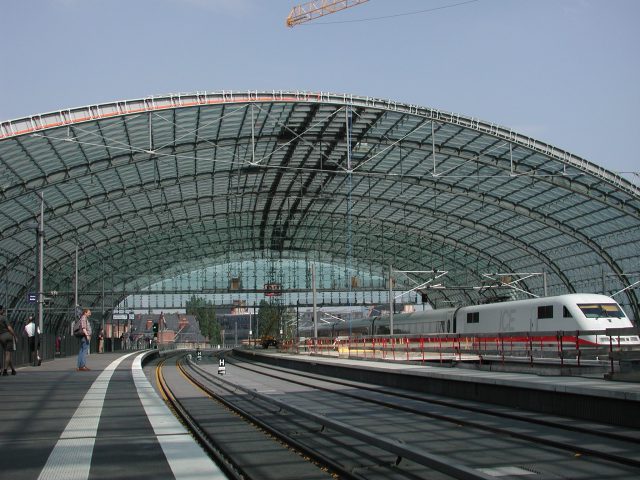
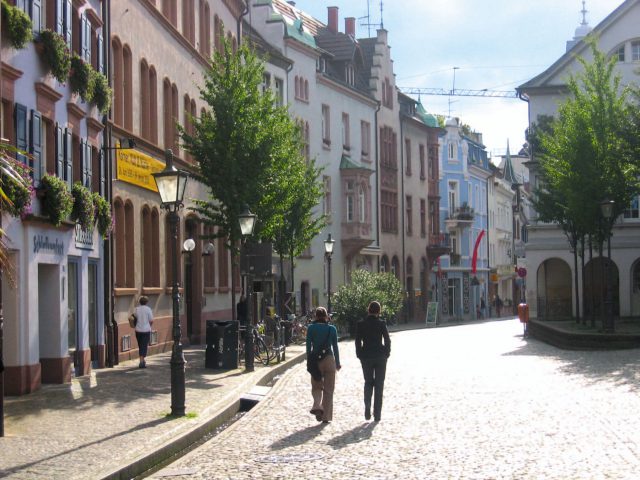
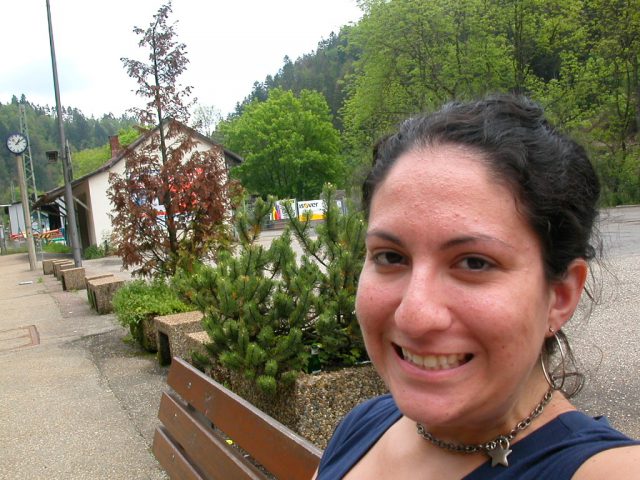
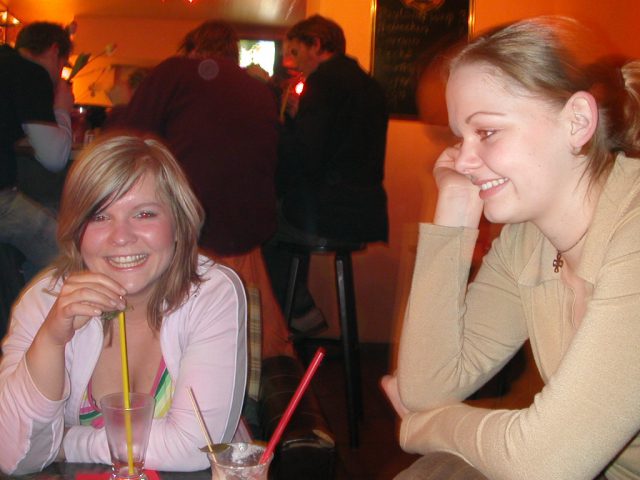
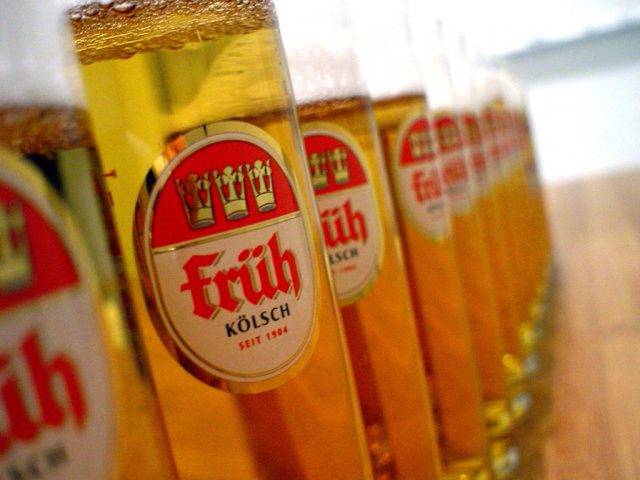
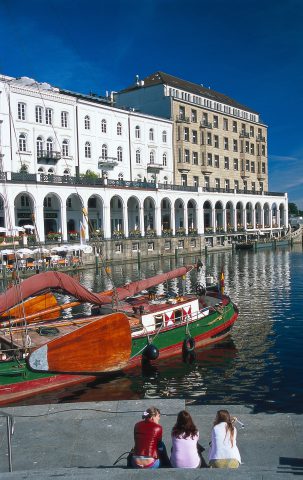
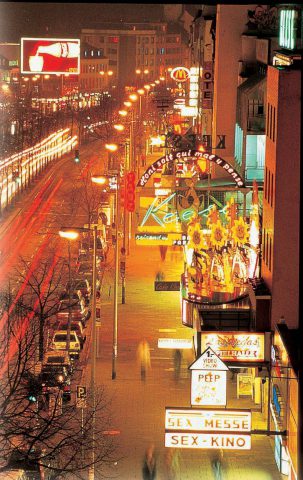
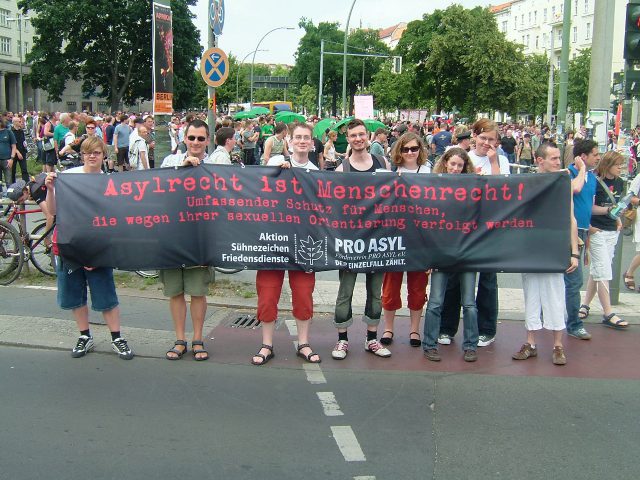
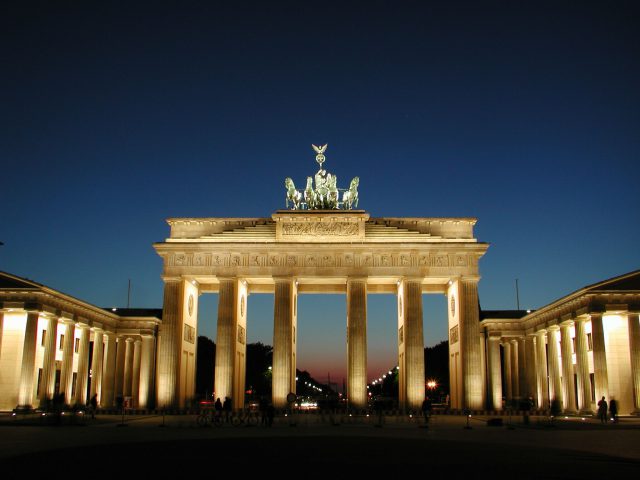
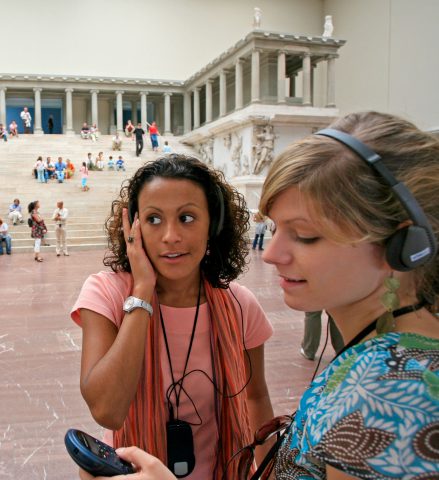
What Do You Think?